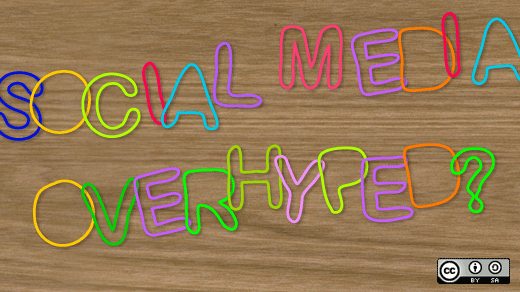So maybe I'm just getting old, but when just about every article about the Silly Bandz craze credits social media with the spread of the fad, I can't be the only one who thinks we're overvaluing the role of Twitter and Facebook.
Word of mouth marketing has always been the best type, and social networking and the Internet are really just amplified versions of it. But when I compare the progress of the Silly Bandz fad to a similar one of my youth (Millennials, I'm talking about slap bracelets), the colorful silicone bands don't actually seem to be spreading any faster or in a different manner. In fact, substitute the word “Silly Bandz” for “Slap Wraps” in this 1990 NY Times article, and you'd hardly know it's been twenty years since the bracelets made news headlines.
(I'll give my fellow Gen Xers a moment to pick themselves up off the floor.)
If you look at the interviews with kids who are caught up in the fad, they're seeing them at school. Hearing about them from a friend. Were gifted a band by a visiting cousin. Or, in my son's case, found one laying on the sidewalk, stuck it on his scooter, and discovered its popularity when the band quickly vanished.
Searching for signs of life
At first glance, the Silly Bandz Facebook fan page is impressive. I was surprised by the vast numbers of discussions there, right up until I clicked on a thread that went on for pages with largely an array of insights like:
“U r so dum. Silly Bandz r NOT just 4 girls.”
“My friend's cousin's fingers turned black and he had 2 get his arm cut off bc he wore 2 many Silly Bandz.”
My apologies to social media enthusiasts, but I remain unconvinced that kids are gaga over these things because they're seeing them on Facebook. Sure, they're talking about Silly Bandz there, but that's because social networking is an integral part of their lives. They're also chattering away about them on cell phones and during recess, but no one is crediting either of those with the craze.
Some real industry changes
That's not to say that social media doesn't have a measurable impact on some businesses.
When a Southwest Airlines crew decided comedian Kevin Smith was too fat to fly, he tweeted a series of irate messages to the company (and the rest of the Internet). With plenty more disgruntled and stranded customers, the airline industry can no longer ignore the colorful complaints that would have once been rerouted to the nearest trash can. It's still too early to determine if the negative "press" will harm the industry more than the forced improvements in customer care will help.
Meanwhile, the recruiting industry has benefited greatly from professional social networks like LinkedIn, which have made talent poaching a respectable practice. (This begs the question: Is it really poaching if people have checked the “interested in career opportunities” box?) A recruiter at a well-known corporation recently confided that the company now finds sites like Monster.com largely irrelevant—the same sites that were their primary source of leads just a few years ago.
And certainly social media has forced marketing, branding, and PR teams to assess the authenticity of their communications. Customers, both current and prospective, expect to be engaged in dialogue. Organizations that use social media solely to broadcast messages frequently find themselves ignored, or worse, unfriended.
Remaining competitive
So if social media is both significant and insignificant, how does a business keep up with technology while remaining competitive?
For one, realize that social media is no panacea. Twitter isn't going to sell your product if nobody wants it, and having a Facebook page doesn't equal having a following. I've yet to see social media save a nonviable business.
That's because the 21st century business model requires more than a few social network accounts. It means doing business the open source way. When you are committed to transparency, social media is not threatening. When you are excited about collaborating with customers, social media offers unprecedented opportunity. Sharing your knowledge has never been easier or more affordable.
On the other hand, if you want secrecy, social media is terrifying. If you want to dictate the terms of your relationship with your customers, social media is undermining. If you want to hoard your knowledge, well, good luck with that.






7 Comments